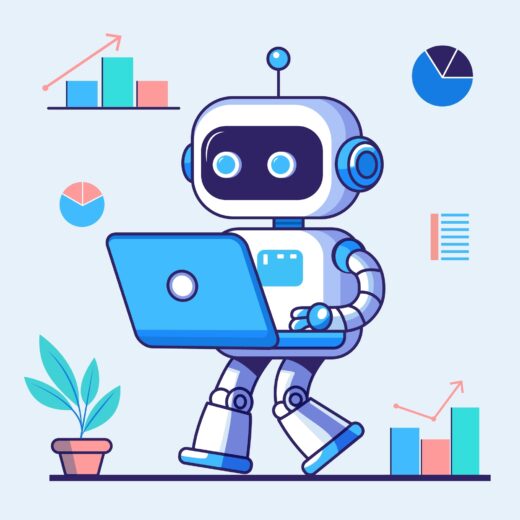From Keywords to Conversations: AI’s Role in Smarter SEO

In the ever-evolving world of search engine optimisation, we’re witnessing a major paradigm shift: from keywords to conversations. Traditional SEO, once dominated by stuffing exact-match terms into web pages, is being reshaped by the rise of artificial intelligence. Search engines are getting smarter, and to stay ahead, marketers need to understand how AI is redefining the game.
🔍 The Old SEO Playbook: Keywords Were King
For years, SEO revolved around researching high-volume keywords, optimising content around exact matches, and securing backlinks. The logic was simple: if you target the right terms, you’ll win traffic. And to be fair, that worked, until search engines started to understand that intent matters more than individual words.
Enter Google’s algorithm updates like RankBrain, BERT, and MUM. These AI-powered systems moved us beyond surface-level optimisation into the world of semantic search, where context, nuance, and user intent matter most
🧠 The New Era: AI Understands Meaning, Not Just Matches
AI has transformed how search engines interpret queries. It’s no longer about “cheap hotels London”, but more like “where can I find a budget-friendly place to stay in London with good reviews?”
Here’s how AI is leading the change:
-
Natural Language Processing (NLP): AI can interpret conversational queries, decipher ambiguous language, and understand synonyms and context.
-
Search Intent Analysis: AI helps Google (and marketers) understand what users really want—informational, transactional, or navigational content.
-
Content Matching: Google can now assess whether a page actually answers the question, rather than simply includes the right phrases.
Bottom line: Search engines think more like humans now—so your content needs to speak like a human, too.
💡 How AI Is Empowering Smarter SEO Strategies
It’s not just the search engines using AI; marketers and developers can now leverage AI tools to work smarter, faster, and more strategically.
1. Smarter Keyword Research
AI-powered platforms like Ahrefs, SEMrush, and Surfer SEO use machine learning to:
-
Suggest keyword clusters based on intent
-
Identify content gaps
-
Predict which keywords are trending based on real-time data
2. Content Creation & Optimisation
Tools like ChatGPT, Jasper, and Frase help marketers:
-
Generate semantically-rich, structured content
-
Optimise headings, questions, and paragraphs to match user search patterns
-
Maintain consistency across pages at scale
3. Voice Search & Conversational SEO
With AI driving voice assistants like Siri, Alexa, and Google Assistant, your SEO strategy must include:
-
Natural, long-tail phrases
-
FAQ-style content
-
Local and mobile optimisation
4. Technical SEO & Automation
AI can now audit websites, predict crawl issues, and recommend fixes:
-
Tools like Screaming Frog + AI integrations or Botify help map out and optimise large sites
-
AI also helps with internal linking, schema markup, and image alt-text suggestions
🔮 The Future: Search Without the Search Box?
As AI-driven search continues to evolve (think: Google’s Search Generative Experience, ChatGPT search plugins, and multimodal search), users might rely less on typing and more on speaking, snapping, or interacting with search results in real time.
That means your content needs to be:
-
Conversational
-
Well-structured
-
AI-friendly (i.e., machine-readable and contextually rich)
SEO is no longer about ticking boxes or chasing algorithm updates. It’s about understanding people and their intent—and AI is the bridge that connects human queries with meaningful answers.
From keywords to conversations, the future of SEO is here. And it speaks your customer’s language.
Need help optimising your SEO strategy with AI?
Let’s talk about how we can elevate your content, automate your research, and build smarter websites, faster.







